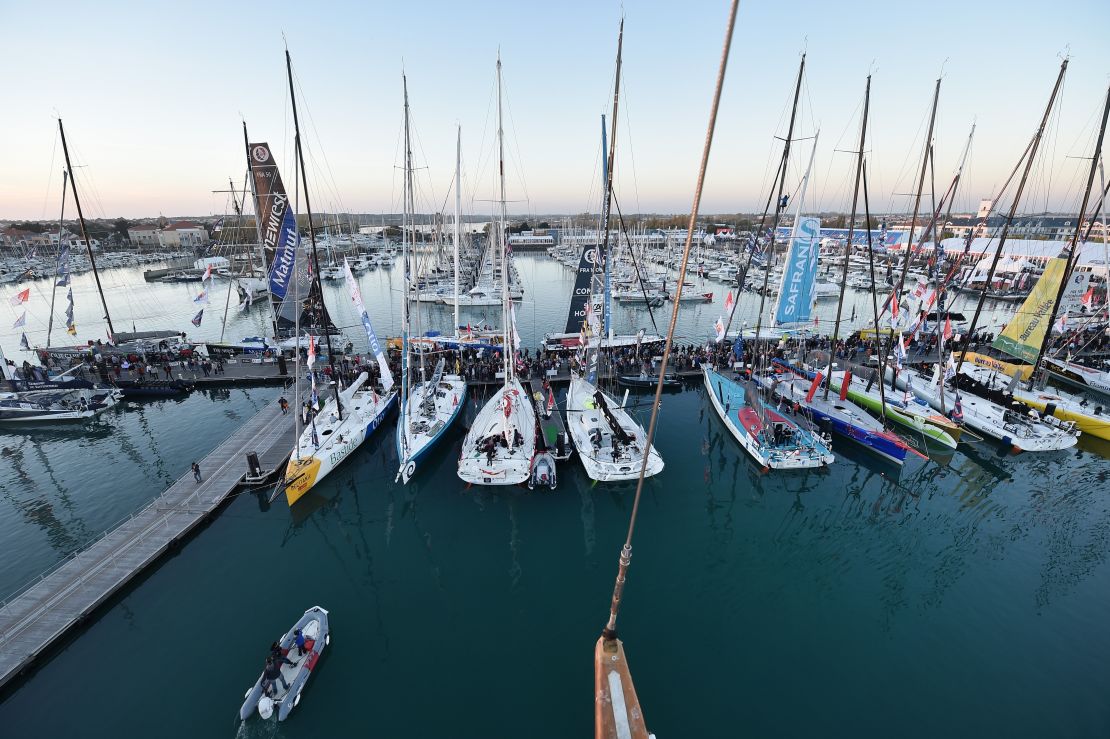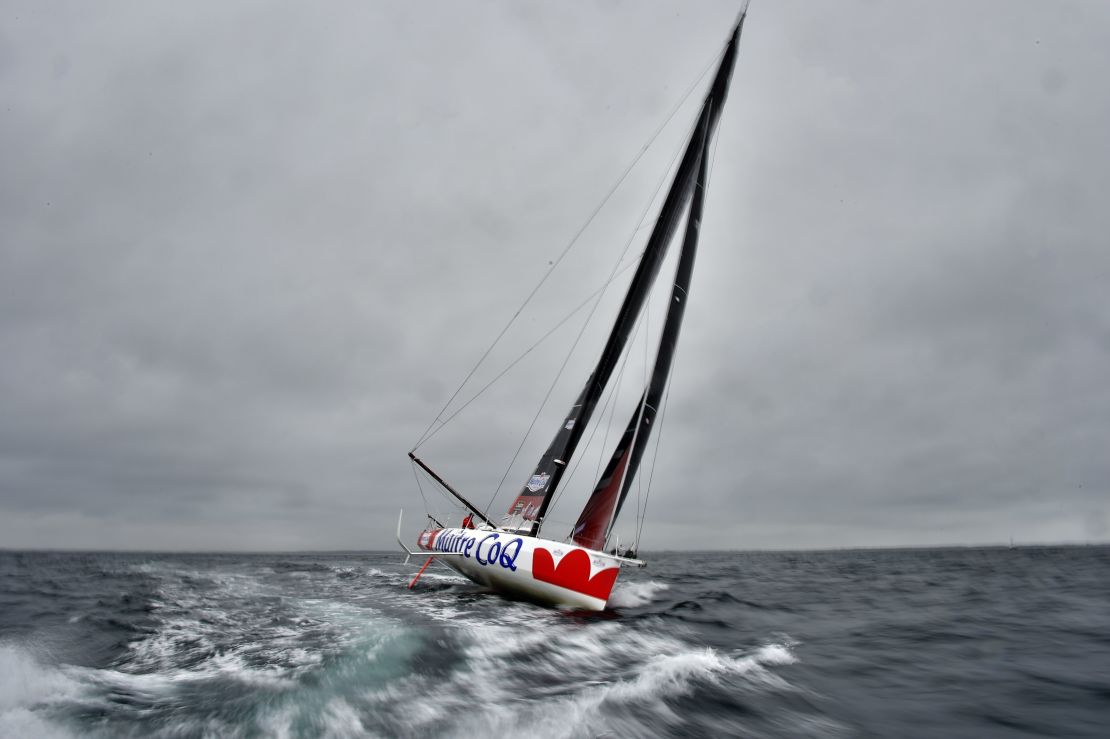Story highlights
Vendee Globe is a solo around-the-world race
Only half of its sailors have ever finished
Not many 66-year-olds would choose to spend three months alone at sea, eating instant oatmeal while trying to steer a 60-foot boat across the most demanding oceans on the planet.
But Rich Wilson isn’t your average 66-year-old. Despite suffering from acute asthma since childhood, the former teacher is back for his second attempt at the Vendee Globe – the world’s only solo, nonstop, around-the-world sailing race.
“I’m not trying to prove anything to anyone else, I’m trying to prove something to myself,” Wilson told CNN.
“When you’re a kid, if you can’t go outside and run around with your friends, one of the things that comes from that is a determination and a perseverance to continue,” he said, referring to his asthma. “Your pain threshold for being out of breath goes up.”

World’s toughest sailing race
Almost three times older than the race’s youngest competitor – 23-year-old Swiss skipper Alan Roura – Wilson has been training for months in preparation for the grueling 28,000-mile race.
Twenty-nine skippers will set sail Sunday from Les Sables d’Olonne on France’s Atlantic coast, embarking on a voyage around the southern Capes that will take approximately 100 days to complete in powerful Imoca Open 60 yachts.
The Vendee Globe is so hard, it’s known as the “Everest of the Seas.”
Since the first race in 1989, three sailors have died and many have been rescued. American Mike Plant was lost at sea prior to the start of the race in 1992 and British skipper Nigel Burgess was also lost three days into the race in the same year.
Canadian Gerry Roufs disappeared in the south Pacific in 1997. His boat was later found on the Chile coast.
Wilson, who hails from Marblehead, Massachusetts, was one of only 11 sailors to successfully complete the race in 2009, finishing ninth. On day two, a huge storm in the Bay of Biscay knocked three boats out and sent five back for repairs.
The gale threw Wilson across the cabin and broke two of his ribs – he was forced to sleep bent over the chart table until he reached the Indian Ocean.
“You go out to sea with some humility,” he says, undeterred. “You’re never going to conquer it. King Neptune might allow you to pass – that’s your best hope. You go out with great respect and just do your best.”

Age effects
To prepare for the challenge, Wilson has been training hard in the swimming pool and gym. But although he’s in excellent shape, his personal trainer Marti Shea says the eight years he’s aged since his last Vendee Globe have reduced his body’s capability by 5% – significant given the extreme physical effort of sailing a 60-foot yacht alone.
Wilson will have to consume 6,000 calories a day, from foil-packed chicken and salmon to ramen and oatmeal packs, with “constant snacking.”
“There’s obviously something about aging that you just can’t necessarily overcome by effort,” Wilson says. “It’s a hard task for anybody. If I didn’t think I could do this physically, I wouldn’t.”
He gained recognition in 1980 after winning the Newport-Bermuda race, before smashing three world records: San Francisco-Boston in 1993, New York-Melbourne in 2001, and Hong Kong-New York in 2003.
But Wilson’s voyages haven’t always gone smoothly. In 1990, he and his crewmate Steve Pettengill had to be rescued by a cargo vessel off Cape Horn after 85-knot winds caused their 60-foot trimaran to capsize.
Education through adventure
Before his 1990 voyage, the Harvard and MIT-educated former mathematics teacher set up SitesALIVE! – a non-profit education organization dedicated to using real-life adventures to engage children in science, geography and math.
The organization has now produced interactive learning programs around 75 live expeditions. School children will be able to follow Wilson’s Vendee Globe race through photos, videos and analysis from a team of experts.
Wilson estimates the program reaches almost two million schoolchildren around the world, and is the only reason he ever tackled the ultimate endurance test in the first place.
“I had no interest whatsoever in sailing the race. It’s too hard, it’s too long, it’s too dangerous,” he said. “But the Vendee Globe is the greatest sailing race in the world. If you can capture kids’ attention with an exciting, engaging adventure, then that helps to solve the teachers’ biggest problem.”
Have your say on our Facebook page
Coping at sea
With years of experience behind him, Wilson has a few strategies for coping with three months alone on the ocean.
“I do talk to myself at sea,” he admits. “I talk through the maneuvers as I’m going through them so I won’t skip a step.”
Music can help to lift the mood or ease the nerves. He was given a CD of 18 St. Benedictine monk chants, and listened to it during a force seven gale.
“It helped me stay calm,” he says. “If you have to get psyched to go on the foredeck and set the big gennaker (sail), you listen to some Bruce Springsteen to get yourself kind of pumped.”
Overall, the veteran sailor is feeling “good” about the momentous challenge.
Visit cnn.com/sailing for more news and videos
“The goal is to sail around the world faster than last time. The French are quite explicit about it: If you finish this race you’re a winner; we don’t care where you come in. We want you to come home, that’s it.”














